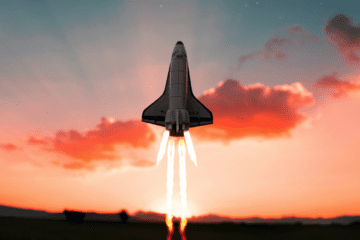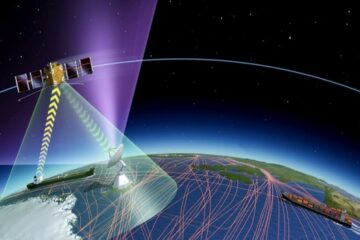Introduction
Excitement about the future of space is at an all-time high after the successful launch of SpaceX’s Crew Dragon vehicle during the summer of 2020. Aside from all the fanfare and media attention, the launch also marked a big milestone in the development of the Space Economy—defined as an area of production and consumption of goods and services—as the first private crewed launch vehicle. Currently, the space economy is still in its infancy, but significant expansion and development are expected to take place in the next 20 years, boosting the space economy to become a major economic driver in the latter half of the 21st century.
The Space Economy
Currently, the space economy can be categorized into two operational areas: earth focused and exploration. Earth focused operations are largely feasible today, while exploration activities generally require a level of technology that is set to arrive within a decade. Currently, earth focused operations are being undertaken, such as monitoring the planet’s changing ecosystems, heavy manufacturing, and satellites being used for a multitude of reasons including for intelligence, GPS, and telecommunications. In the years that come, firms will build on the successes in these industries to create next generation solutions in earth focused operations, such as satellite constellations for telecommunications networks.
Exploration operations aren’t ready to be undertaken yet but will be soon. Potential activities include asteroid mining, space tourism, and interplanetary living. There are some firms starting to experiment in each of these industries—like SpaceX’s recently announced tourism flight—but in order for operations to be safe, effective, and economically feasible, more development needs to happen. Realistically, we can look towards the second half of the 2020s for implementation.
Financial Outlook
For much of its history, space has been a nationalized industry, but that needs to change in order for the space economy to become self-sustaining in the coming years. According to a research report published by US Investment Bank Morgan Stanley, global space activity was valued at $414.8bn in 2018, and 78% of that value was created by private companies.

By 2040, this proportion of the economy fueled by private entities will have grown significantly as new technologies allow new industries to expand to and flourish in space. One of the largest industries that is expected to grow exponentially in the next 20 years is internet service providers (ISPs). Currently, some product offerings are beginning their rollout, such as SpaceX’s Starlink satellite constellation, but many new players are expected to enter the market and the value of the industry as a whole is expected to reach $412bn by 2040—almost as valuable as the entire space economy currently.
Space Startups
With the exception of big names like SpaceX and Blue Origin, most companies that will become big players in the space economy are still in their nascent stages. This is especially the case in Italy, where most space focused firms are still in development and few have launched hardware into space. One exception is D-Orbit, an Italian space logistics company that just launched their Pulse Mission atop a SpaceX Dragon 9 rocked. The mission served as a deployment vehicle for smaller CubeSats, utilizing a “ride-share” model popularized by American space startup SpaceFlight.
There are also a lot of investment opportunities within companies operating within the space economy. Space specific VC funds have sprung up around Europe and the US, including PrimoSpace in Italy. Many of these funds focus on early-stage companies, offering the capital necessary to get products developed and into space—a rocket launch isn’t cheap after all! Investment within the space economy is only expected to grow as the industry does, with industry analysts projecting that serious developments in the level of investment will happen over the next 20 years.
The Future of Space
Development in the space economy will only accelerate in the coming years, so it’s best to prepare for any eventuality. Will the space economy be government subsidized or be full of self-sustaining private firms? Can the economic space development be achieved by a single country, or is international cooperation required? These questions might seem like they have simple answers, but when it comes to something as complex as developing an economy, it’s difficult to predict. Either way, once we can answer these questions, we’ll be that much closer to getting the humanity into the cosmos and the space economy off the ground.



0 Comments